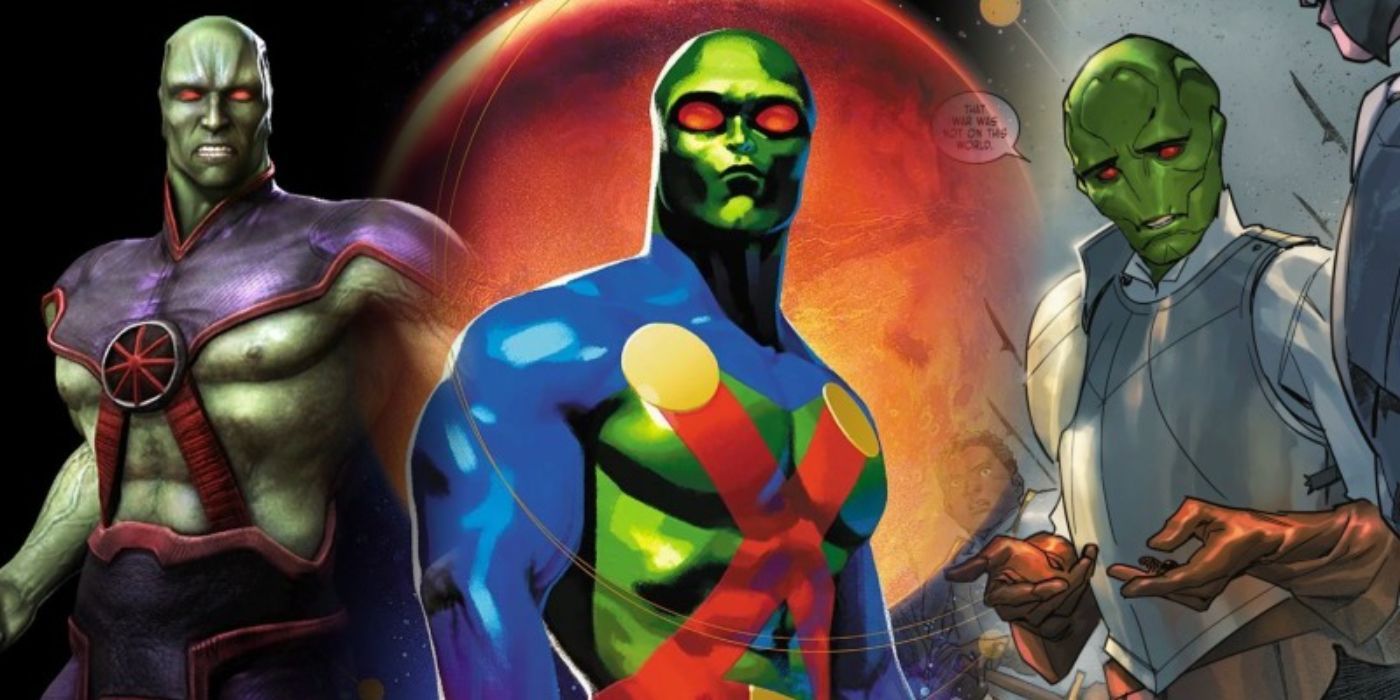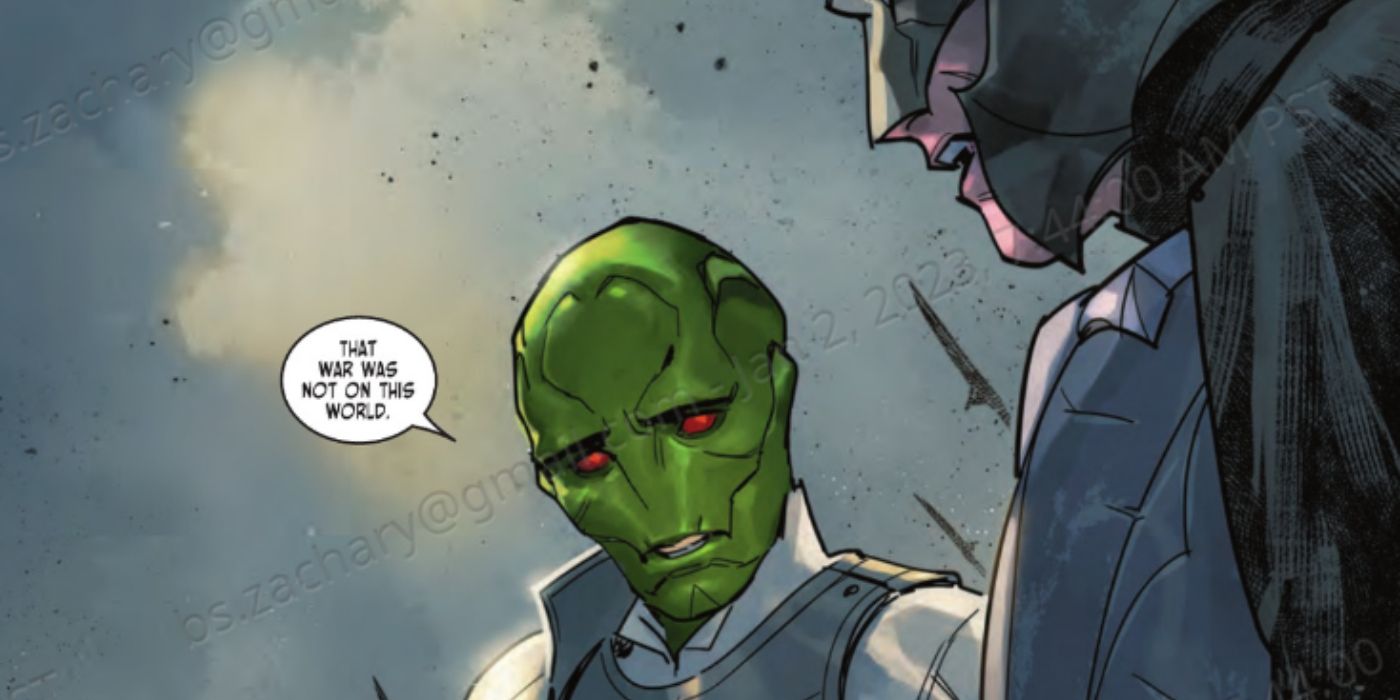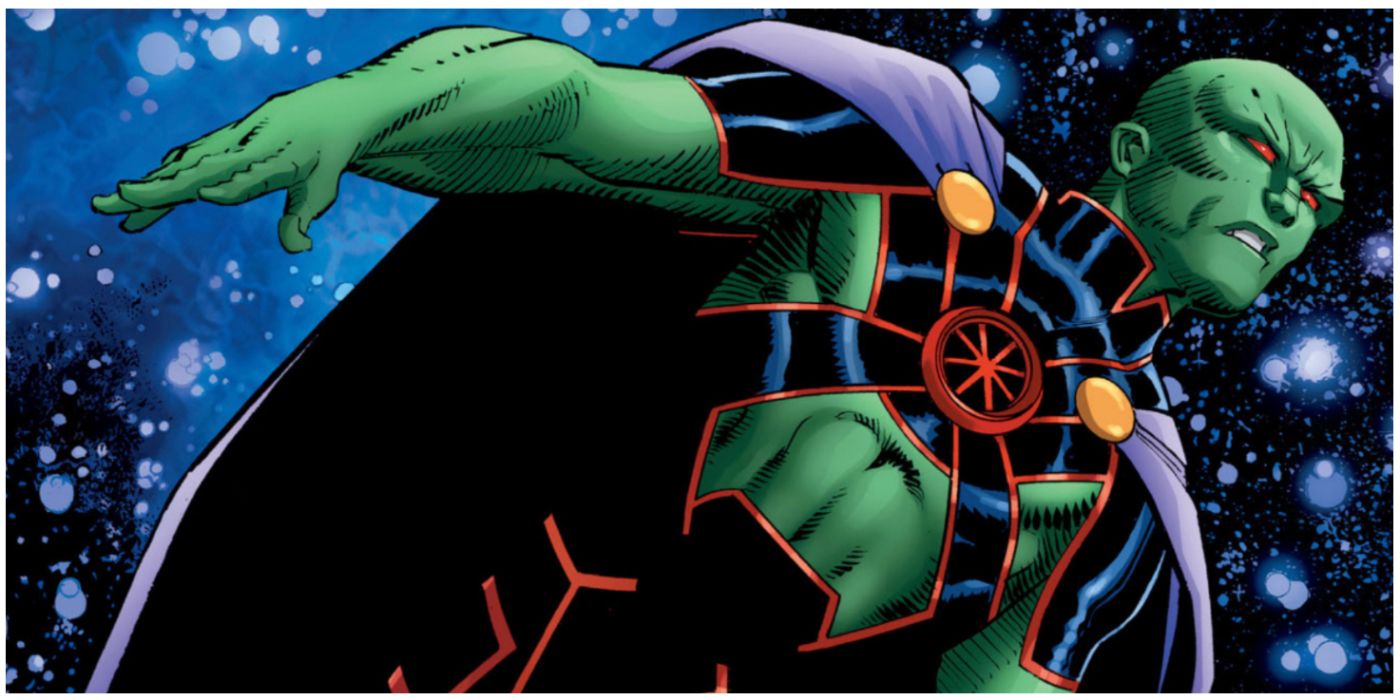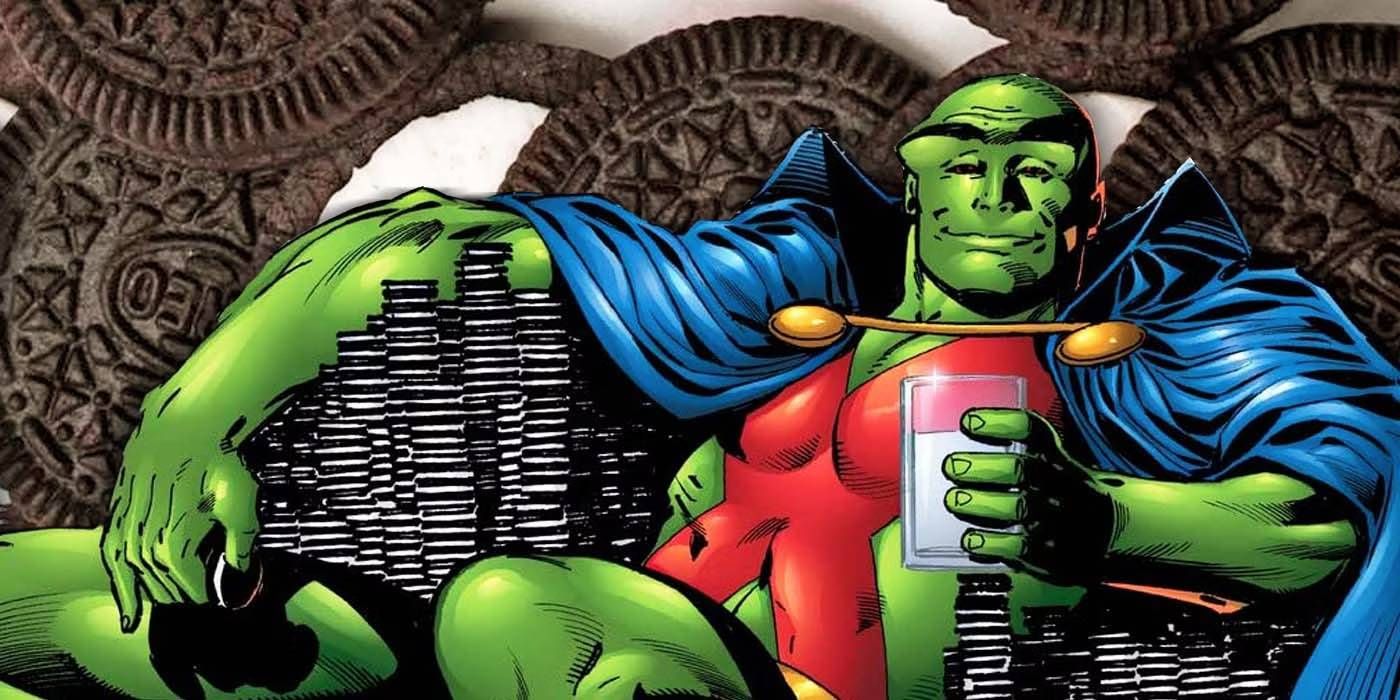Martian Manhunter has long been a pivotal part of the DC Universe, but this hasn’t always manifested with the due reverence. Despite being touted as the heart and soul of the Justice League, he’s rarely portrayed to be as wise or powerful as he’s meant to be. This extends to various Elseworlds and alternate continuity stories, most of which relegate the Last Martian to a plot device or cannon fodder.
Dark Knights of Steel is the latest example of this unfortunate trope, further reducing J’onn J’onnz’ stature as a character and brand. It’s definitely disheartening given how prominent he could be, especially with all his power. Although he shares many similarities with other DC heroes, there’s more than enough room to spotlight him as a major player in his own right, giving the true seventh Justice League member his due.
Dark Knights of Steel Has Disrespected Martian Manhunter
As mentioned, many divergent continuities don’t paint Martian Manhunter in the best light. The Injustice comic books featured him in a very minute role, and he was ultimately killed rather easily by Superman’s heat vision. Now, Dark Knights of Steel has similarly killed him off with ease, with Amanda Waller being the one to do the deed. Given that Martian Manhunter is meant to be in the same weight class as Superman, Wonder Woman and Captain Marvel/Shazam, this ultimately comes across as a disrespectful death. That’s without even touching Martian Manhunter’s human guise being Batman’s butler Alfred. In other words, this vastly powerful being is reduced to little more than a supporting character for another, and is viewed as a literal servant.
Even the iconic Kingdom Come story wasn’t kind to Martian Manhunter, with the alien trapped in his human form and barely able to maintain tangible after opening his mind to all of humanity. Again, this came off as a rather convenient development, as someone of J’onn J’onnz’ power level could have easily been a major factor in the story’s final battle. It comes off as if Martian Manhunter’s “presence” in these books is merely a plot contrivance that has to be waved away to explain why he isn’t a bigger deal. Unfortunately, such a trend isn’t exclusive to these alternate universes.
Martian Manhunter is Not as Important as He Should Be
Martian Manhunter debuted in the Silver Age of Comics, representing the period’s shift away from the Golden Age’s mysticism into an era of science fiction. His stories initially focused more on mystery and detective concepts, but his immense power level quickly expanded. This put him on the same level as Superman, or at least pretty close to the Man of Steel. Given that his usual origin story also makes him out to be the last of his kind, these similarities make sense. Unfortunately, this hasn’t translated to nearly as much mainstream success as the Last Son of Krypton. It wouldn’t be until the late 1990s – over a decade after Crisis on Infinite Earths – that J’onn J’onnz received his own monthly courtesy of writer John Ostrander. This would be one of the few times that the character has had such a book in modern times, and he’s largely been relegated to serving on the Justice League.
Martian Manhunter actually has more of a logical claim to be the League’s leader than anyone else, as he’s consistently served on the team. Unfortunately, one of the few times in which he did so was the somewhat infamous Detroit-based team, in which he and Aquaman served alongside newcomers such as the laughable original incarnation of Vibe. Justice League: Task Force was another example of him leading the team, though this was at a time when Superman was dead. Conversely, during The Death of Superman, Martian Manhunter’s essence was trapped inside the vengeful hero Bloodwynd, explaining why he wasn’t there to lend assistance in the fight against Doomsday. This was a mainstream universe example of major stories and fights coming up with contrivances to get J’onn out of the way.
Worst of all was the New 52 reboot, which controversially rewrote continuity and took away Martian Manhunter’s founding membership in the Justice League. Worst of all, he never seemed to have really served with the other classic members of the team, with his place being taken by Cyborg. This change was adapted into the DC Extended Universe movies, and though Martian Manhunter eventually showed up in his true form during Zack Snyder’s Justice League, he felt more tacked on than anything. The New 52 retcon was eventually undone, but it speaks to how the character’s true potential has been overlooked. Although he might arguably have a lot of narrative overlap with other heroes, could easily carve out a niche for himself that easily separates him from the rest of DC’s heroes.
DC Can Finally Let Martian Manhunter Come Into His Own
A Martian Manhunter ongoing title has a lot of potential, namely when it comes to experimentation. The character has outright described himself as being as strong as Superman, and he has the same deductive mind as Batman. This presents the perfect opportunity to do with him what DC would likely never allow with either of the World’s Finest, especially the Last Son of Krypton. Despite being such a classic DC hero, Martian Manhunter doesn’t have the same squeaky-clean image as Superman. Thus, his stories can take on a darker, more psychological nature without being criticized as being “out of character.” Thus, he could use his physical and mental abilities to scour the darkest reaches of the DC Universe, be it in more cosmic stories set in space or down to Earth capers in his usual stomping ground of Middleton.
A key to making this work is to give the Manhunter from Mars villains worthy of his power. The aforementioned Ostrander run created quite a few of these, with J’onn’s evil brother Malefic being the perfect foil for him. Another great foe is Despero, who’s had quite the storied rivalry with Martian Manhunter. Bolstering his rogues’ gallery requires villains with near cosmic power levels and more mundane metahumans, allowing for his stories to have a very broad scope. A good point of reference would be the current Fantastic Four run from Marvel Comics, which combines the team’s usual high stakes with more grounded stories reminiscent of The Twilight Zone. The same tone was also present in the hero’s DCYou comic book run, which felt both reverent and subversive in the best way. Martian Manhunter would deal with these many times mindbending misadventures while trying to carve out a “human” life for himself as a detective.
This sort of storytelling requires a strong supporting cast, with Ostrander wisely keeping Saul Erdel (the scientist who first summoned J’onn to Earth) around as an ally. By cementing these allies and antagonists as major parts of Martian Manhunter’s life, he finally has a chance to achieve popularity outside the Justice League. Likewise, this tone would firmly put him in the “dark science-fiction” category of major DC heroes, with Superman usually being more lighthearted and Green Lantern somewhere in the middle. A parallel to this is the Mark Waid/Dan Mora Shazam book being more wholesome while Aquaman and Wonder Woman represent darker takes on magic and myth. By following this formula, J’onn can have a niche of his own where he’s not simply relegated to monitor duty in the JL Watchtower. Most importantly, the “heart and soul” of the DC Universe would finally feel like he’s reaching for his full potential.




